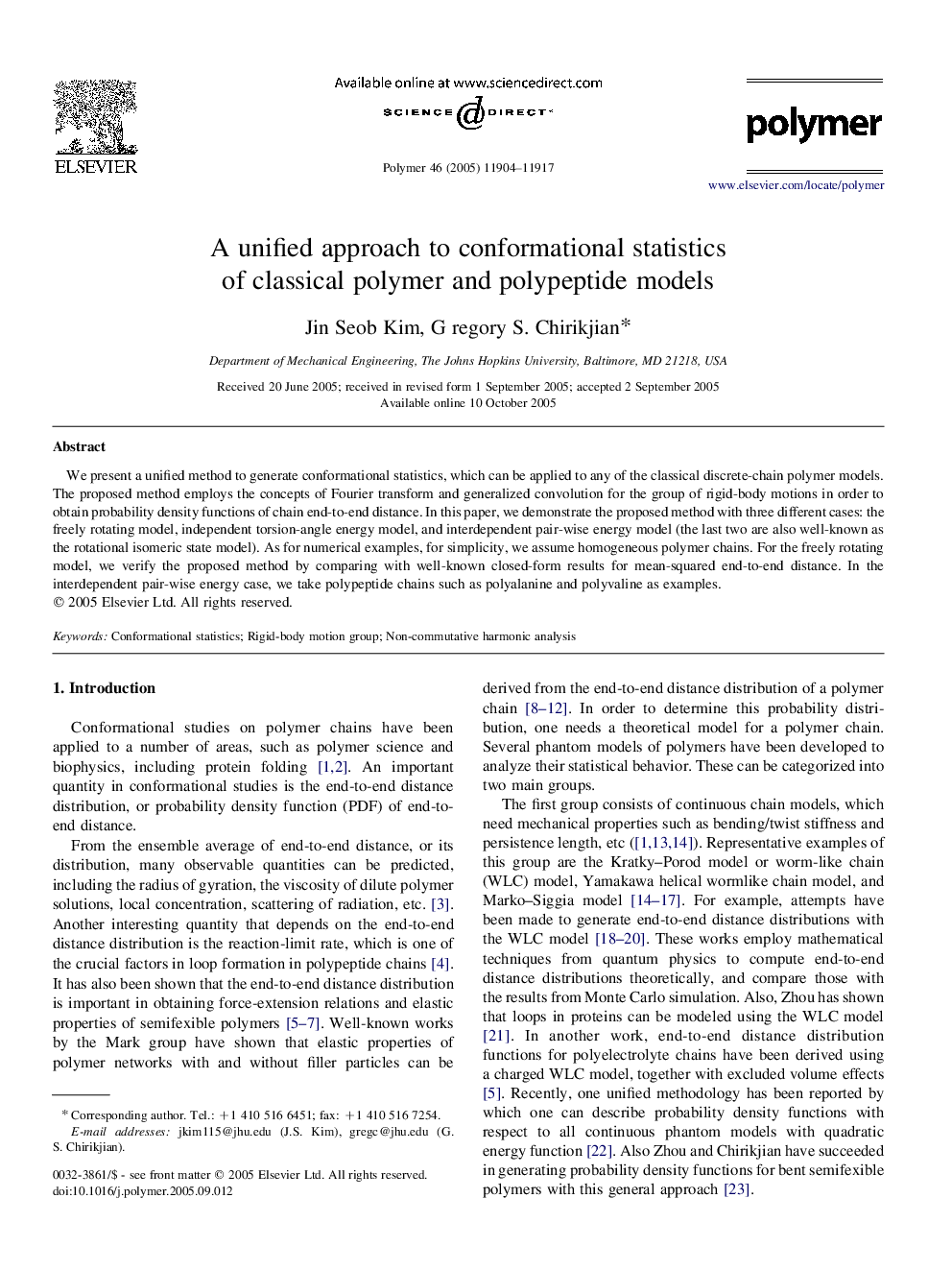| Article ID | Journal | Published Year | Pages | File Type |
|---|---|---|---|---|
| 5187557 | Polymer | 2005 | 14 Pages |
We present a unified method to generate conformational statistics, which can be applied to any of the classical discrete-chain polymer models. The proposed method employs the concepts of Fourier transform and generalized convolution for the group of rigid-body motions in order to obtain probability density functions of chain end-to-end distance. In this paper, we demonstrate the proposed method with three different cases: the freely rotating model, independent torsion-angle energy model, and interdependent pair-wise energy model (the last two are also well-known as the rotational isomeric state model). As for numerical examples, for simplicity, we assume homogeneous polymer chains. For the freely rotating model, we verify the proposed method by comparing with well-known closed-form results for mean-squared end-to-end distance. In the interdependent pair-wise energy case, we take polypeptide chains such as polyalanine and polyvaline as examples.
